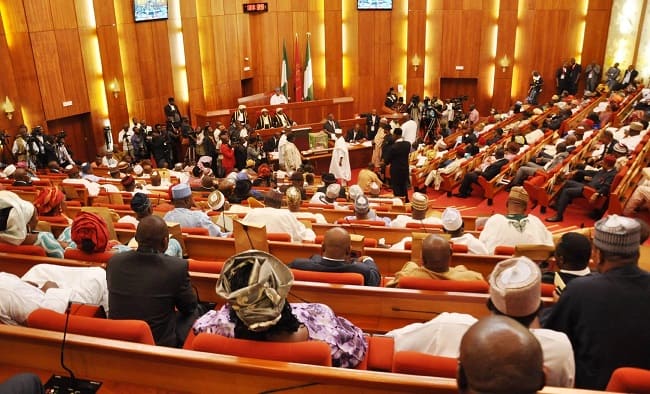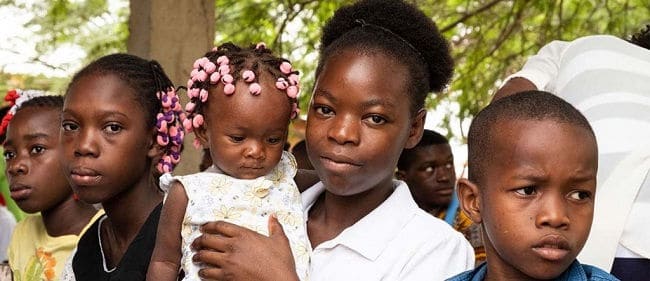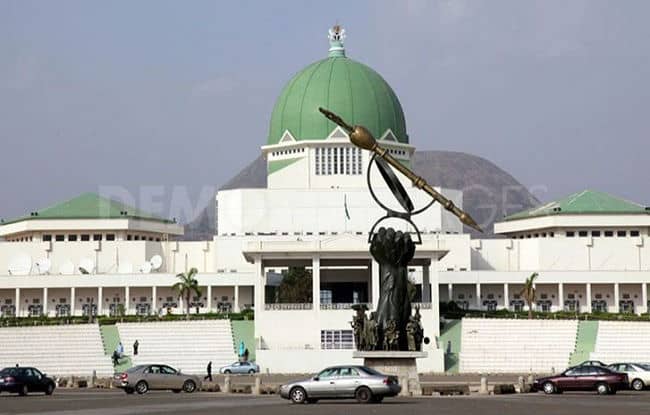Electoral Act: National Assembly Rejects Voting Right for Underage Mothers
The joint Senate and House of Representatives Committee on the Independent National Electoral Commission and Election Matters have rejected a proposal to allow married underage girls to vote during elections.

It was revealed that the proposal did not scale through when it was tabled before the Technical Committee on the Electoral Act Amendment at the end of its three-day retreat held in Abuja recently.
The technical panel consists of National Assembly members, Attorney General of the Federation; Chairman of the Independent National Electoral Commission; heads of pro-democratic institutions; and other notable stakeholders in election matters.
It was learnt that members of the joint panel, while reviewing the outcome of retreat, agreed with the positions canvassed by participants at the forum and dropped the proposal.
- READ ALSO: Keep On With Your Campaign For Peace- Omo Agege Tells El-Rufai At 61
- READ ALSO: Insecurity: Bandits Now Using AK49 While Nigerian Army Still Using AK47 -Senator Ndume
- READ ALSO: Auditor General Cloned With Poor Performance And Negligence Of Statutory Duty – Senate…
The Chairman, Senate Committee on INEC, Senator Kabiru Gaya, and his counterpart in the House of Representatives, Hajia Aisha Dukku, had said the proposal was part of the memoranda received during the public hearing jointly held by the National Assembly panel on the proposed amendment.
But many stakeholders, especially civil rights groups and lawmakers, had kicked against the provision when it was presented as part of the proposed amendments to the Electoral Act 2021.
They argued, among others, that, it was a smart way of giving legal backing to child marriage.
Gaya confirmed that the proposal did not sail through, as stakeholders unanimously rejected the idea on the grounds that it was in conflict with the constitution, which pegged voting age at 18.
He, however, said the Islamic religion recognizes any mother, no matter the age, as being responsible and mature.
Gaya said, “The law recognizes an 18-year-old person and above as eligible voters but we wanted to put a caveat that any married lady who is not up to 18 years old should be qualified but the proposal did not sail through.”
Meanwhile, it was also learnt that the joint panel amended the Electoral Act to the effect that INEC now has power to declare the running mate of any candidate who dies before the official declaration of results as winner.
The amendment was sequel to the legal battle that greeted the 2015 Kogi State governorship election when the candidate of the All Progressives Congress, the late Abubakar Audu, who already had the highest number of votes, died before the result of the poll was officially announced.
INEC resolved to postpone further action on the exercise and approached the court for guidance.
INEC ordered a rerun election in areas where the result had not been announced before Audu’s demise.
Audu’s running mate then, Abiodun Faleke, not satisfied with the position taken by INEC, approached the court but the outcome of the legal battle did not favour him.
Gaya explained that the decision to recognize the candidate in an election rather than the party was unanimously adopted by members of the panel.
Women suffrage is the right of women by law to vote in national or local elections. Beginning in the mid-19th century, aside from the work being done by women for broad-based economic and political equality and for social reforms, women sought to change voting laws to allow them to vote.
In 1979, Women of the northern region were granted suffrage under the Constitution of the Federal Republic of Nigeria (1979).
The voting age was also lowered to 18 and the citizenry were included in presidential elections. We can see that voting age was above 18 years of age before Northern Nigerian Women were granted Suffrage in 1979.
Epiphany Azinge in his “The Right to Vote in Nigeria: A Critical Commentary on the Open Ballot System” said; the right to vote in Nigeria has a rather chequered history.
Universal adult suffrage became a reality in Nigeria in the 1979 elections when women in the North were allowed for the first time to participate in elections.
Originally the right to vote was thought of as a direct consequence of property interests rather than adhering to the person as a political right. It was only gradually that the vote was altered from a property and income right to a political right.

In as much as age was a critical consideration in “voting rights” with a good reason for being so with maturity being the factor here, birth giving will not arrogate maturity that comes with age and experience to a person who does not have it.
The male who fathers a child below the age of 18 would not be seen to have achieved the maturity and experience needed to discern between different candidates and vote based on good judgment which is the requirement for being qualified to vote and not ones Biological make up or Child bearing proclivity.
Therefore the decision of the Technical Panel of the Joint Senate and House of Representatives Committee on the Independent National Electoral Commission and Electoral Matters to reject married underage girls from voting is believed to be in good taste and reasonable.
Also the position taken by the panel in amending the Electoral Act to the effect that INEC now has power to declare the running mate of any candidate who dies before the official declaration of results as winner is highly commendable and would reduce tension in otherwise heated up political spaces.


